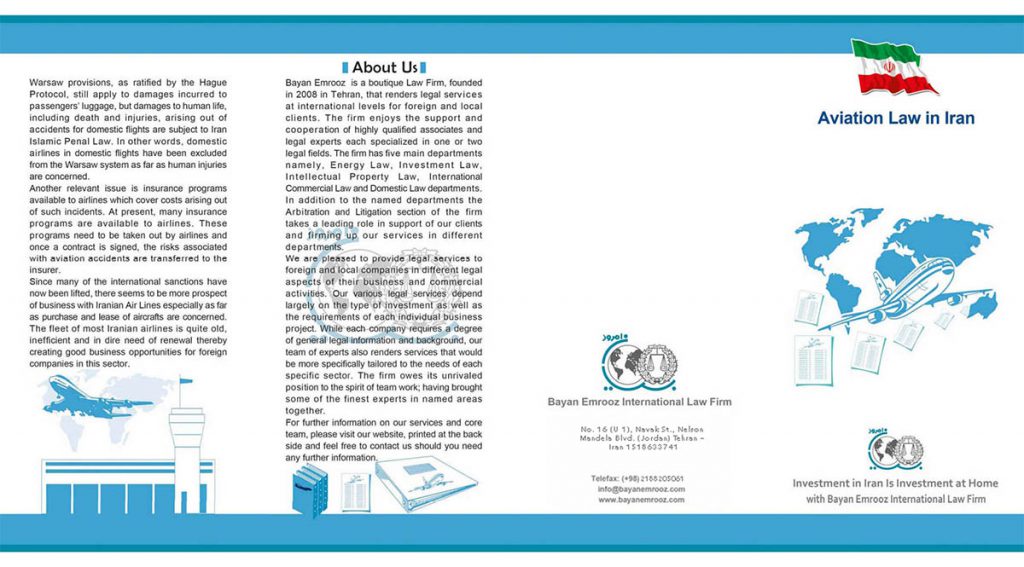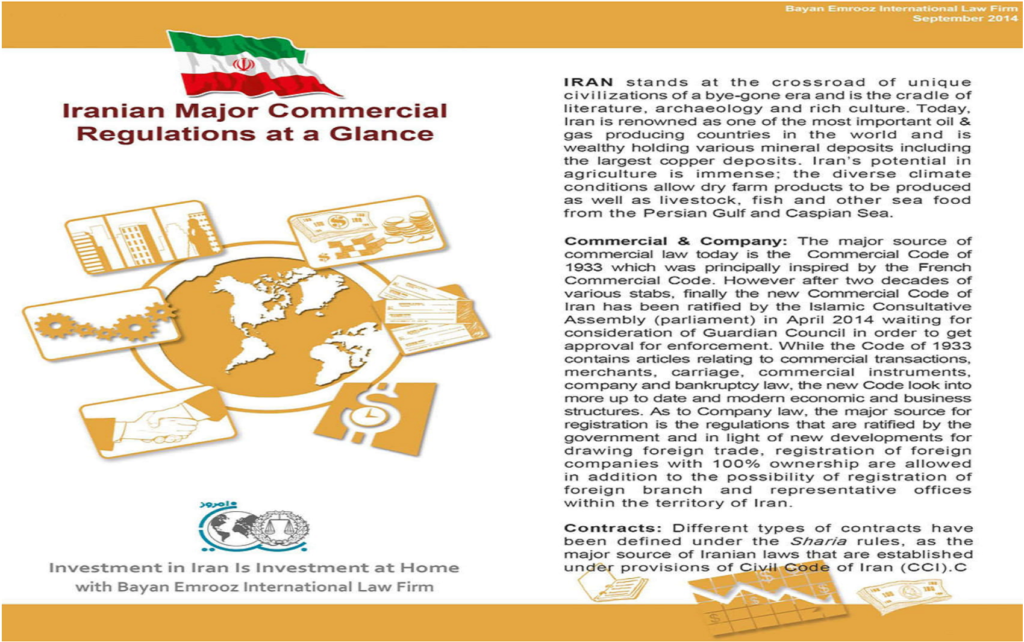In today’s world, using advanced technology has indeed become a daily need. Electronic commerce, as a basic definition, is any commercial activity where parties use computer digital technology and do the transaction from a distance. The advent of this brand new means of commerce has necessitated legal developments.
A salient legal issue in electronic commerce is comparing electronic data in the cyberspace to its physical equivalent in the real world and coming up with similar solutions to define and analyze it. Since electronic commerce is a transnational issue and domestic laws regarding offer, acceptance, endorsement, deeds and witnesses do not address electronic data, some regulations have been formulated for this field in the national and international spheres. The most important legislation in Iran in this area is the Electronic Commerce Law of 2003. This law aims at developing electronic commerce with a view to joining virtual markets and using newest technologies as required under the Fifth Development Plan. One chapter of this law has been allocated to protection of consumer rights, while Consumer Protection Act of 2009 will still be applicable as lex specialis.
Whether carried out in the traditional way or electronically, the most important law governing businesses in Iran is the Union System Act. According to its Article 12, it is necessary to acquire a business license from the competent union or legal authority in order to establish any business, and electronic commerce is no exception. Therefore, all those who intend to sell goods or provide services using the virtual space must acquire a business license from the competent union.
In 2017 Iranian Government issued an Executive Regulation in regard to the Issuance of License and Supervision on Businesses in Virtual Space and Network Marketing. The activities in virtual space are now divided into two categories:
- Virtual Business;
- Network Marketing.
Virtual Business is a business established by any natural or legal person in order to provide products (goods or services) directly or indirectly on a wholesale or retail basis, to wholesalers, retailers and consumers through telecommunication means such as websites and digital software.
Network Marketing is a method for selling products based on which the Network Marketing Company uses its website to organize the marketers in order to sell its products directly to consumers in a place far from the regular selling location. Through this method, each marketer can introduce another marketer as it subset and create a multi-aspect sales group in order to increase sales.
The competent authority for issuance of licenses in this regard is the National Union of Online Business. Therefore, any person, whether natural or legal, who intends to acquire a license in order to have its activities carried out online, must proceed with the license issuance procedures on the website of Commerce Development Center in order to acquire the Reliance Symbol. Since the website is connected to the Union Chamber, this last will be the competent authority for the issuance of the license.
In the same vein, it is necessary for electronic goods and services provider to acquire a reliability logo, which is a type of work license in cyber space, in accordance with relevant directives. The Cyber Crime Act (2011) is another important legislation aiming at prevention of crime in Cyber-Space.
Iran’s enactment of 2003 Electronic Commerce law is very much in line with international provisions and model laws. The 2003 law includes provisions on consumers who receive services online, advertisement on cyber space, protection of data, copyright, trade secrets and trademarks in an electronic context and finally electronic crimes. One can also refer to taxes, intellectual property law, the possibility of concluding contracts electronically and electronic data security, reliability and admissibility, as major issues in electronic commerce.
Bayan Emrooz Law Firm, as one of the pioneers in using electronic commerce, is prepared to offer consultation and legal services to its clients at different levels including contract negotiation, regulation compliance, negotiation and representation before official authorities and litigation before courts on issues relating to this novel field of commerce.













